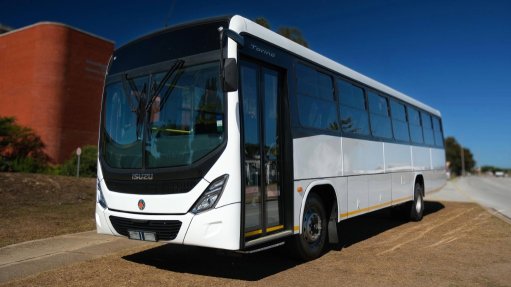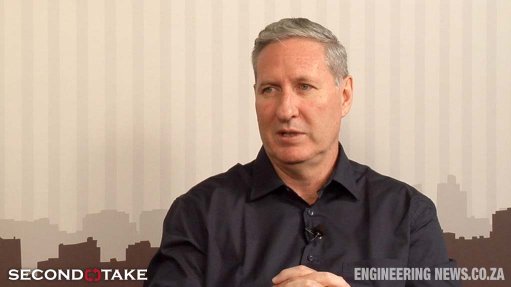Toyota to evaluate local customers’ response to RAV4 plug-in hybrid in new pilot initiative
Following the introduction of the RAV4 GX hybrid last year and the RAV4 hybrid E-Four this year, Toyota South Africa Motors (TSAM) says it will test the local market’s response to the RAV4 plug-in hybrid vehicle (PHEV).
While not officially on sale yet, several RAV4 PHEVs have been imported as a market research exercise to test customer response, vehicle behaviour, infrastructure requirements and other technical aspects, as well as to educate customers on plug-in technology.
The pilot programme allows TSAM to provide its customers “with a holistic and tested solution”, says TSAM.
This also represents Phase 2 of TSAM’s new-energy vehicle roll-out plan, following on from the hybrid vehicle expansion strategy executed across Toyota’s mainstream product ranges.
Toyota says its RAV4 PHEV “offers the power and clean efficiency of an electric vehicle (EV), without the associated range anxiety or charging dependence”.
“Here you get all the benefits of a traditional full-hybrid vehicle – self-charging, petrol engine backup and extended range – with the additional performance and pure EV driving mode of a battery electric vehicle (BEV).”
The PHEV RAV4 has a 2.5 ℓ petrol powerplant, paired with a larger EV battery and two electric motors, driving each of the axles.
The battery is lithium-ion and supplies 18.1 kW of power. It is located below the passenger compartment.
The petrol engine punches out 136 kW of power and 227 Nm of torque.
The engine is paired with front and rear electric motors, which contribute 134 kW and 40 kW respectively. An additional 270 Nm and 121 Nm of torque is on tap. The resulting total system output is 225 kW.
The plug-in model uses the same architecture as the conventional E-Four model, delivering all-wheel-drive performance by providing electric drive to the front and rear axles.
The petrol engine drives the front axle through a CVT transmission.
The RAV4 PHEV offers the driver four modes to choose from.
EV mode is the default setting and prioritises electric-only operation. The vehicle offers a range of up to 80 km in pure EV mode.
HV mode allows the vehicle to operate as a traditional Toyota hybrid. While the driver can select the HV mode, the system automatically switches to HV mode if the battery drops below EV-mode operation levels.
This allows the RAV4 to continue on its journey even when the battery has been depleted by using regenerative braking and/or charging the battery through the petrol engine.
Using the HV mode, the RAV4 PHEV extends its driving range to more than 800 km, depending on driven conditions.
The auto EV/HV mode allows switching between pure electric and hybrid modes, based on the acceleration input required.
The petrol motor is brought on line when required, and then returned to electric operation as soon as conditions permit.
Charging mode is provided to recharge the battery, in which case the system uses the petrol engine to recharge the battery pack.
This is useful when a recharging facility is not immediately available. Once the hybrid battery is fully recharged, the system will switch to HV mode.
To recharge the vehicle conventionally, two solutions are provided, namely a Toyota Mode 2 and Mode 3 charging cable.
Mode 2 allows for home or office charging through conventional AC electric outlets.
The average home charge will take between seven and nine hours.
Mode 3 permits fast DC charging through dedicated charging stations, reducing charging time to 2.5 hours when using a 32A, 6.6 kW charger.
Article Enquiry
Email Article
Save Article
Feedback
To advertise email advertising@creamermedia.co.za or click here
Comments
Announcements
What's On
Subscribe to improve your user experience...
Option 1 (equivalent of R125 a month):
Receive a weekly copy of Creamer Media's Engineering News & Mining Weekly magazine
(print copy for those in South Africa and e-magazine for those outside of South Africa)
Receive daily email newsletters
Access to full search results
Access archive of magazine back copies
Access to Projects in Progress
Access to ONE Research Report of your choice in PDF format
Option 2 (equivalent of R375 a month):
All benefits from Option 1
PLUS
Access to Creamer Media's Research Channel Africa for ALL Research Reports, in PDF format, on various industrial and mining sectors
including Electricity; Water; Energy Transition; Hydrogen; Roads, Rail and Ports; Coal; Gold; Platinum; Battery Metals; etc.
Already a subscriber?
Forgotten your password?
Receive weekly copy of Creamer Media's Engineering News & Mining Weekly magazine (print copy for those in South Africa and e-magazine for those outside of South Africa)
➕
Recieve daily email newsletters
➕
Access to full search results
➕
Access archive of magazine back copies
➕
Access to Projects in Progress
➕
Access to ONE Research Report of your choice in PDF format
RESEARCH CHANNEL AFRICA
R4500 (equivalent of R375 a month)
SUBSCRIBEAll benefits from Option 1
➕
Access to Creamer Media's Research Channel Africa for ALL Research Reports on various industrial and mining sectors, in PDF format, including on:
Electricity
➕
Water
➕
Energy Transition
➕
Hydrogen
➕
Roads, Rail and Ports
➕
Coal
➕
Gold
➕
Platinum
➕
Battery Metals
➕
etc.
Receive all benefits from Option 1 or Option 2 delivered to numerous people at your company
➕
Multiple User names and Passwords for simultaneous log-ins
➕
Intranet integration access to all in your organisation


















